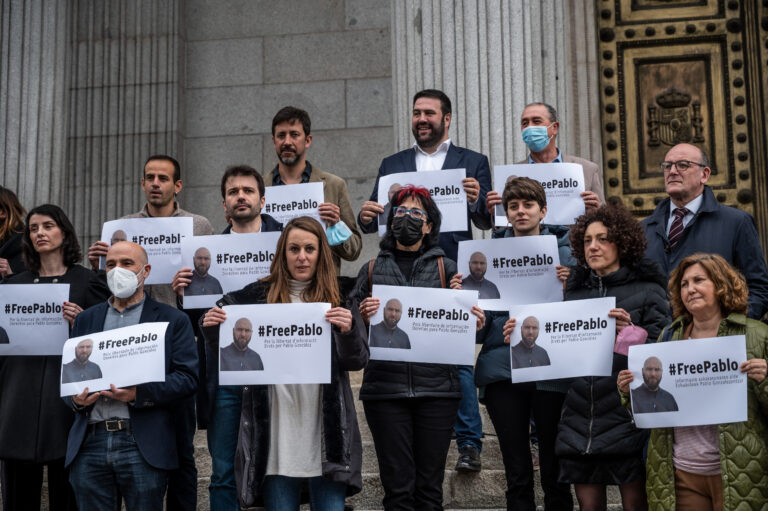According to AMARC, the audiovisual communication law was created without any citizenship input and discriminates against community media.
According to the government, the bill is the outcome of a wide consultation with all actors in the audiovisual sector
(AMARC/IFEX) – 17 October 2009 – The European branch of the World Association of Community Radio Broadcasters (AMARC) refutes the declarations of the government and express its concern over the fact that this important law was drafted without the participation of the media’s main actors and without any kind of debate.
In spite of the fact that the government said that it would consult with all organizations in the media sector during the drafting of the bill and arrive at a consensus, it has not facilitated the flow of information on the contents of law, nor have meetings been held with the relevant organizations, with the exception of the Union of Commercial Television Stations (UTECA). The only way for media organizations to know the proposed law’s contents, and thus allow them to make contributions, has been through the State Council (Consejo de Estado) during the month of August 2009. Just 10 organizations presented proposals in a consultative body hearing, which was not a government initiative.
Moreover, AMARC considers the law to be written with a commercial vision of communication instead of considering it as a natural development of fundamental rights.
In regards to the social uses of media, the law recognizes in a marginal form, in article 32, that non-profit organizations can establish radio and television stations (community-based media). Within this framework, AMARC Europe considers that the article is quite deficient and contravenes the European “Audiovisual Media Services” directive, since it does not include any measures to guarantee or support the existence of these media outlets. While the law puts in place restrictions for community-based media, those same measures do not apply for commercial media services.
On the other hand, in order to regulate community-based media, the Spanish Government did not consult with the Network of Community Media (Red de Medios Comunitarios), although the network requested this many times. Nor did the government take into consideration the recommendation regarding amendments to article 32 proposed by the State Council and the Commission for the Telecommunications Market (Comisión del Mercado de las Telecomunicaciones).
Before the next step towards the passage of the Audiovisual General Law, AMARC demands:
– Improvements and amendments to article 32 regarding community media services.
– Removal of the financial restrictions foreseen in article 32.
– Acknowledgement of the “Red de Medios Comunitarios” proposals, whose declarations have not been taken into account by the Government.
– That the recommendations issued by international bodies be taken into account, including the UN joint declaration on diversity in broadcasting, the September 2008 resolution of the European Parliament on community media and the Council of Europe’s declaration on the role of community media in promoting social cohesion and intercultural dialogue.


